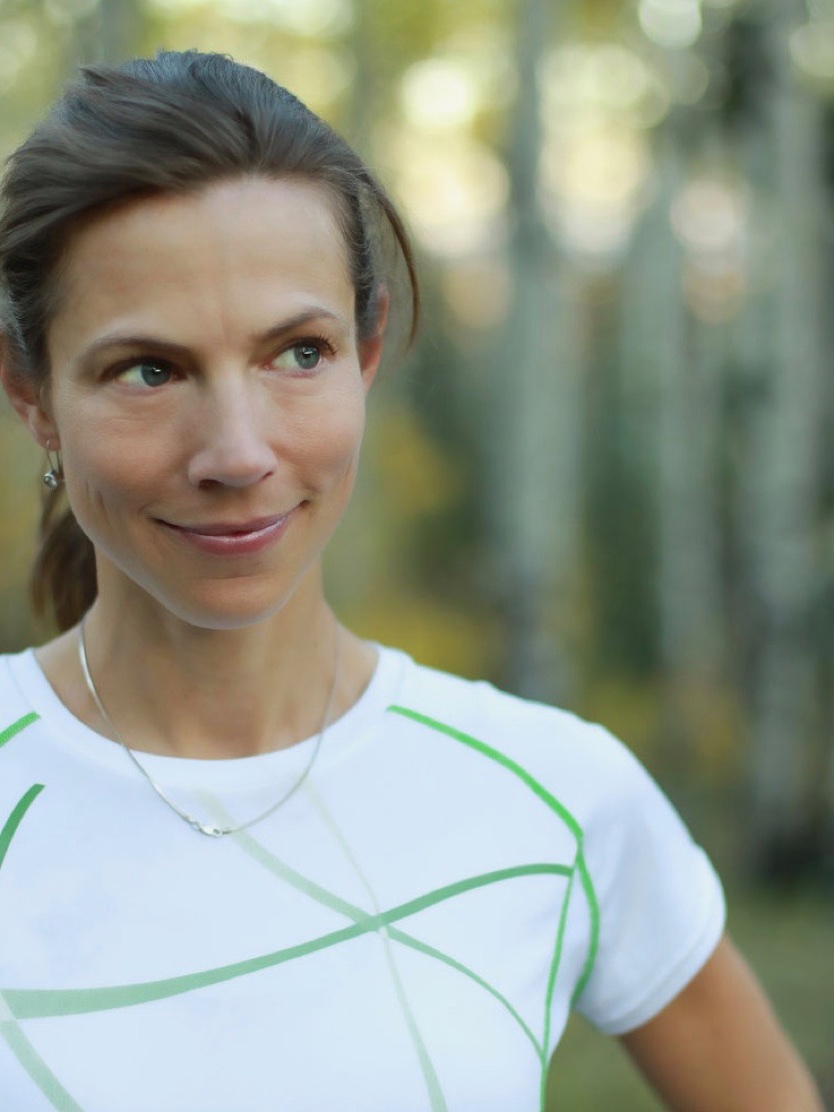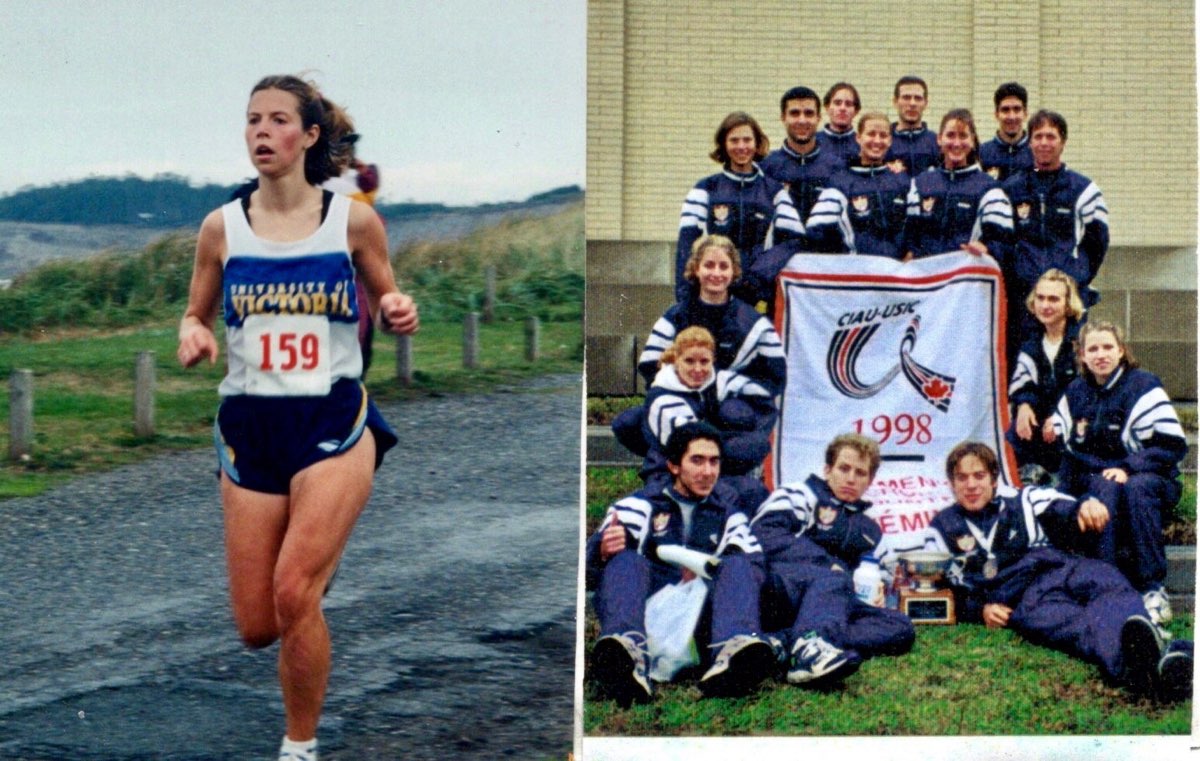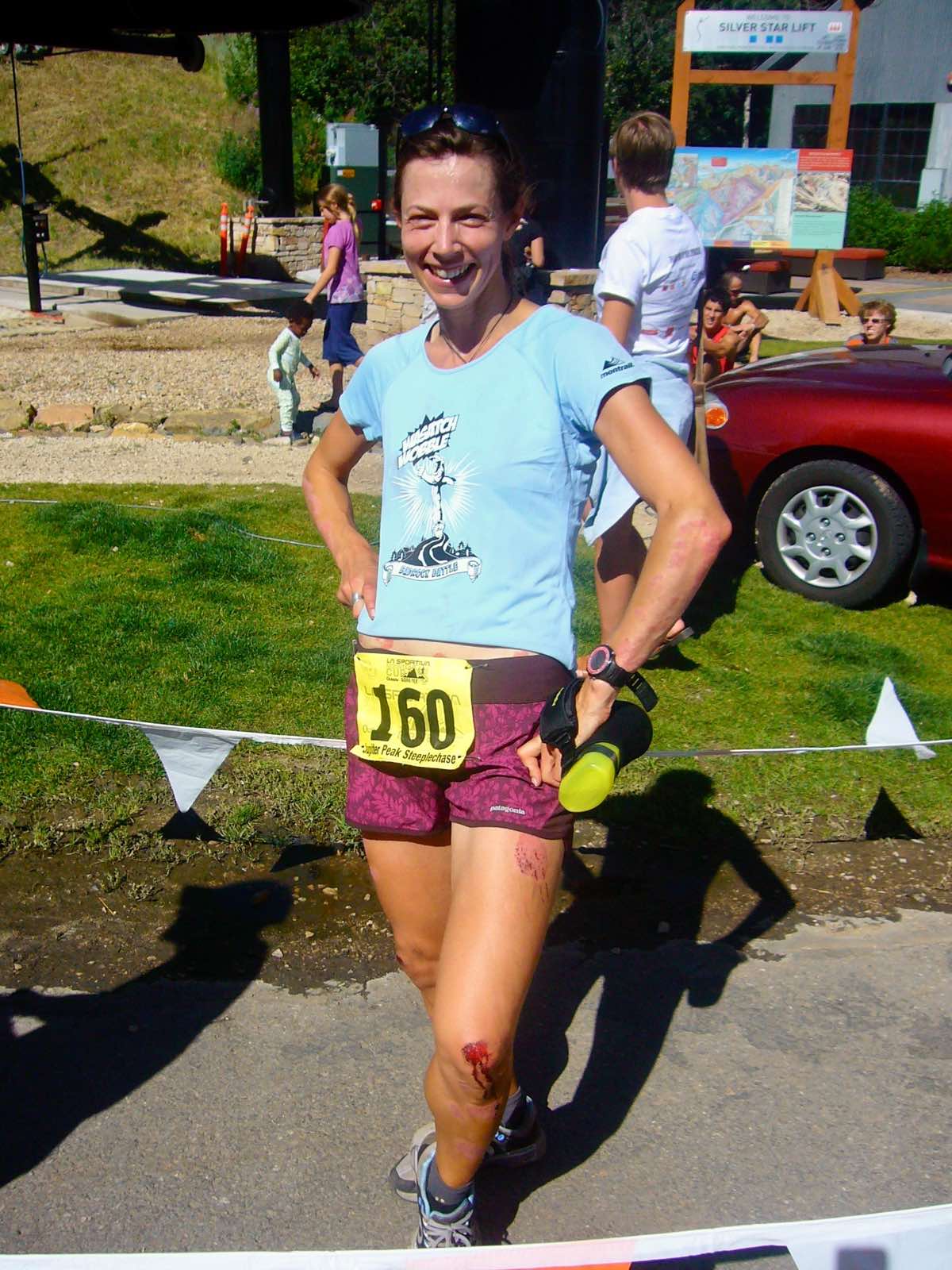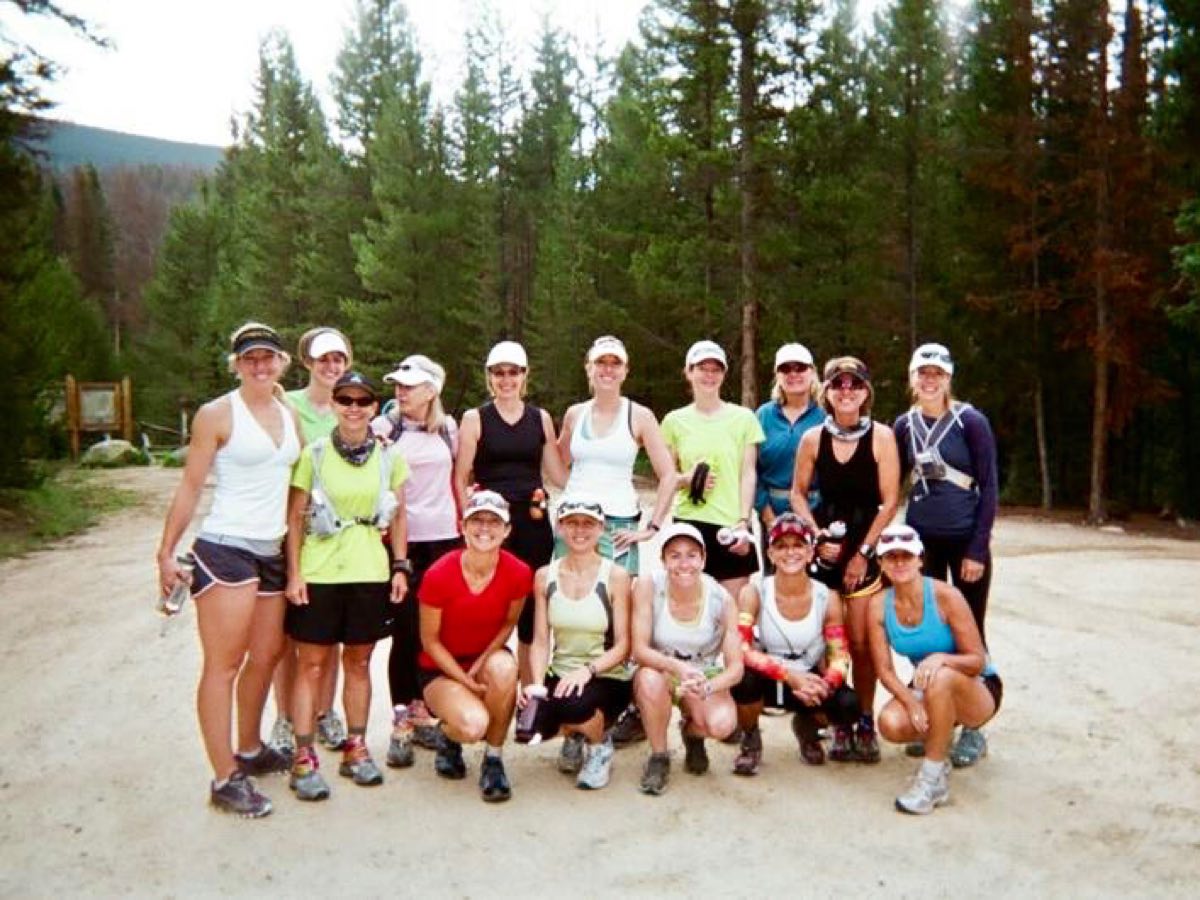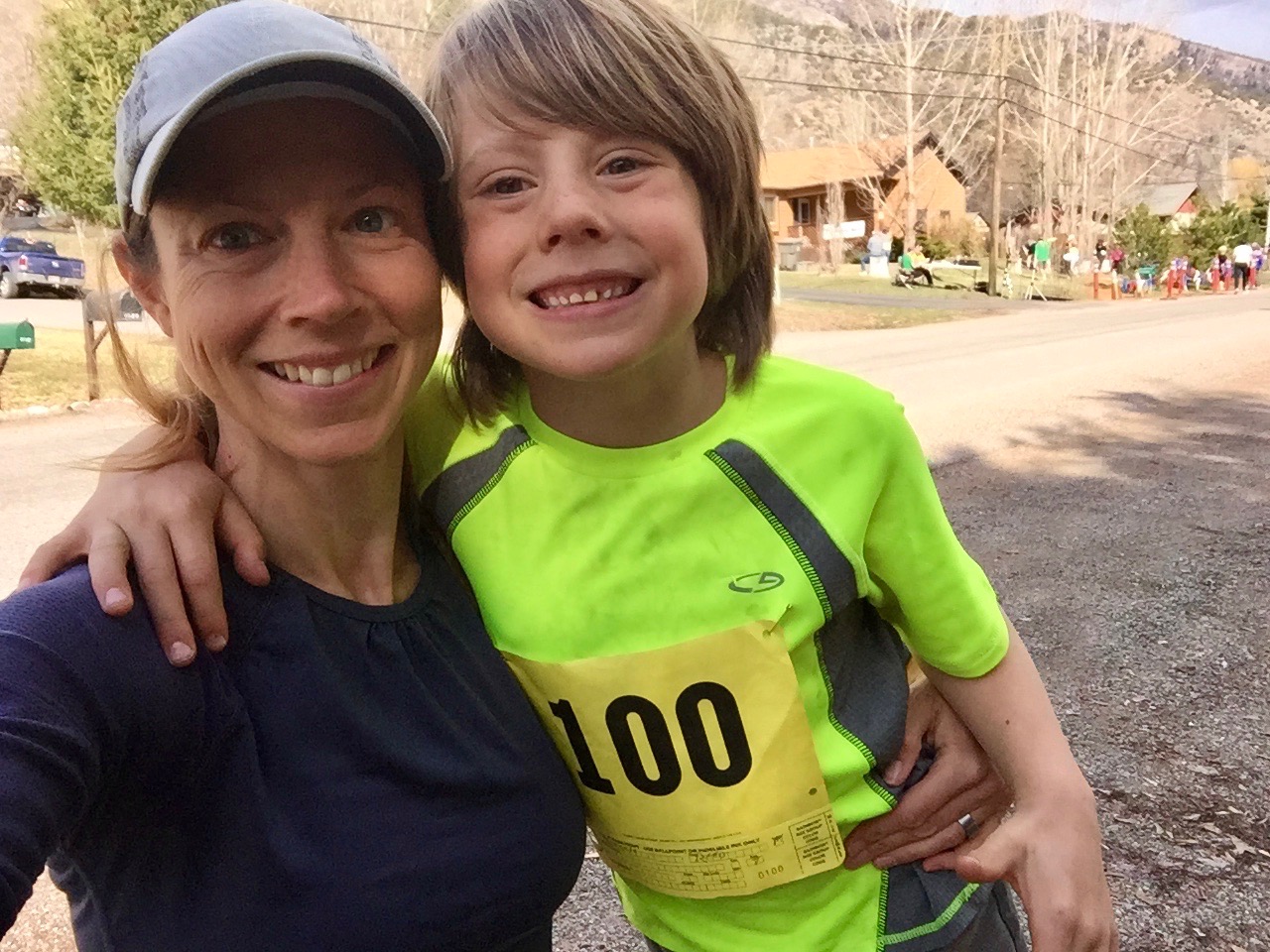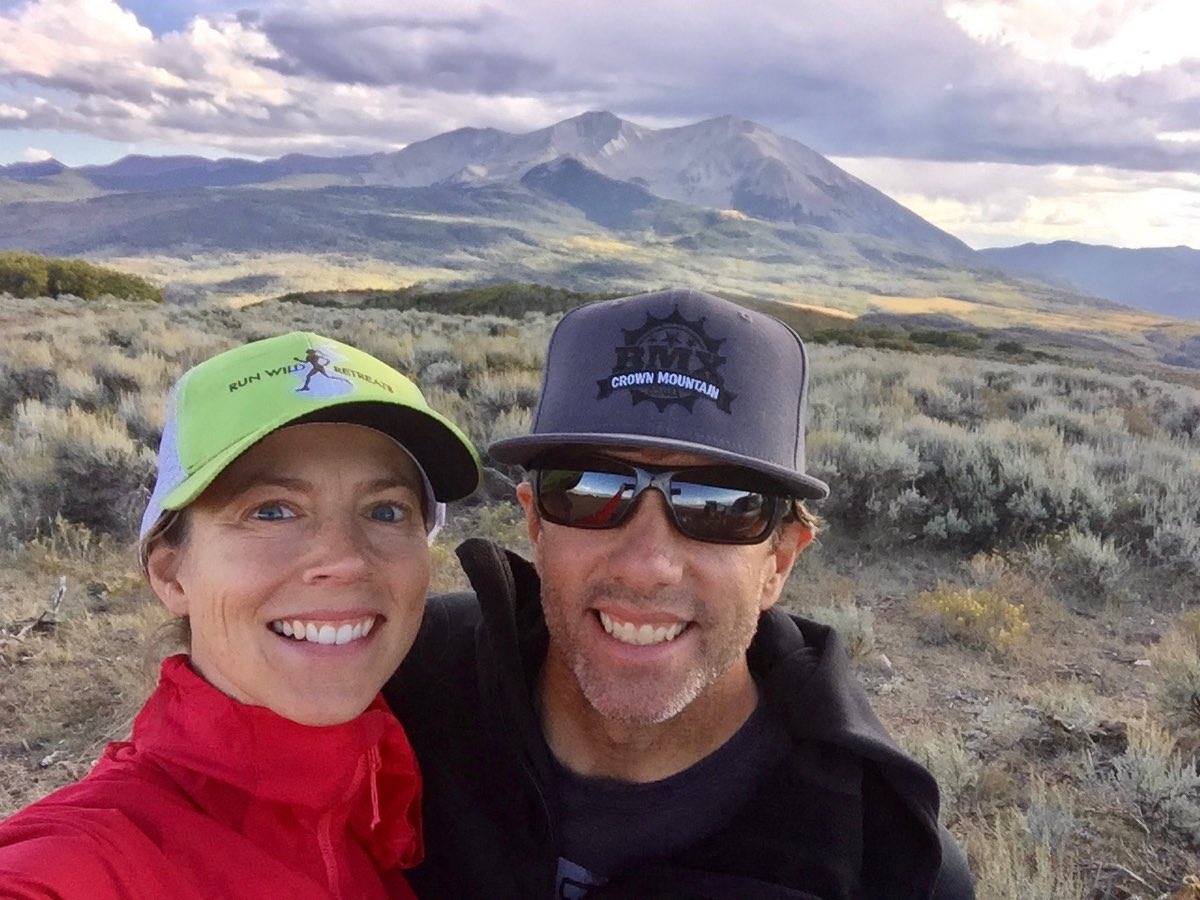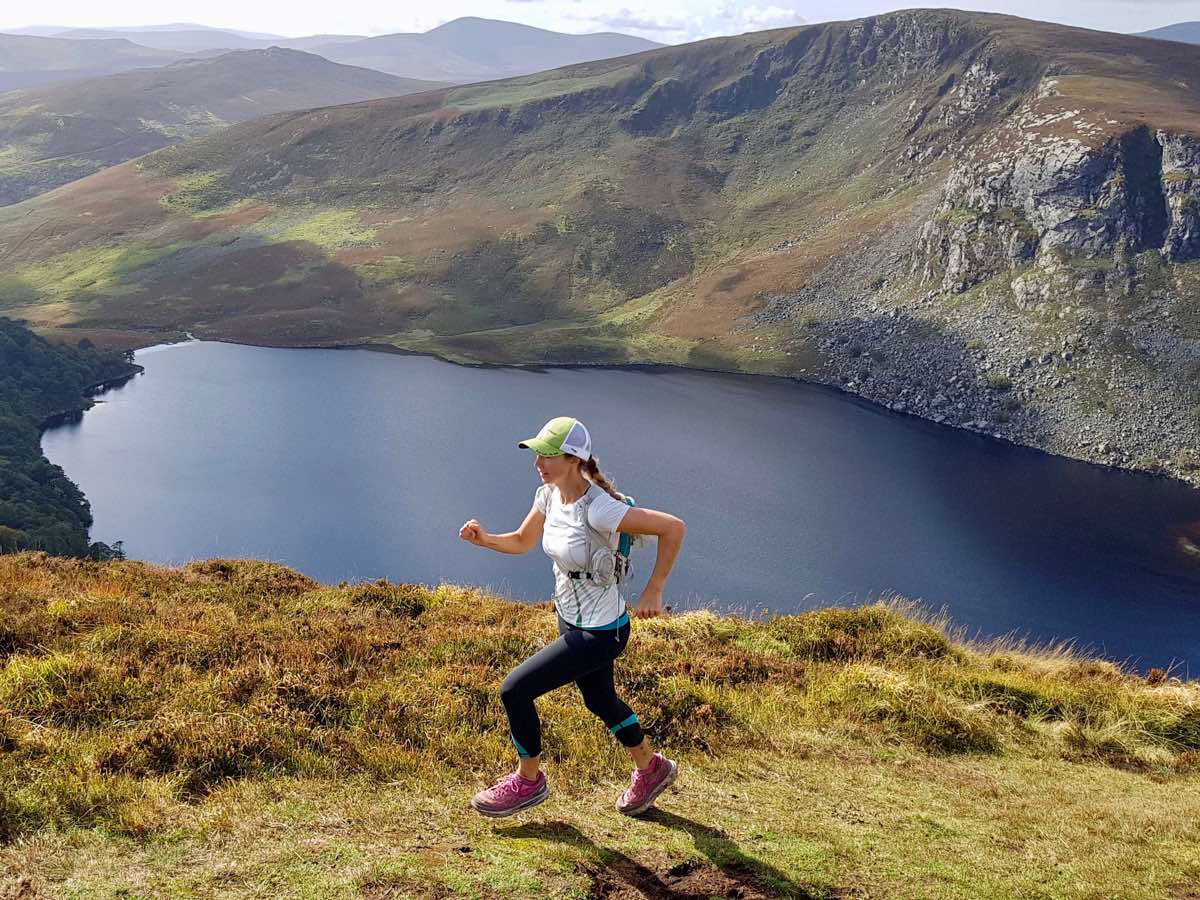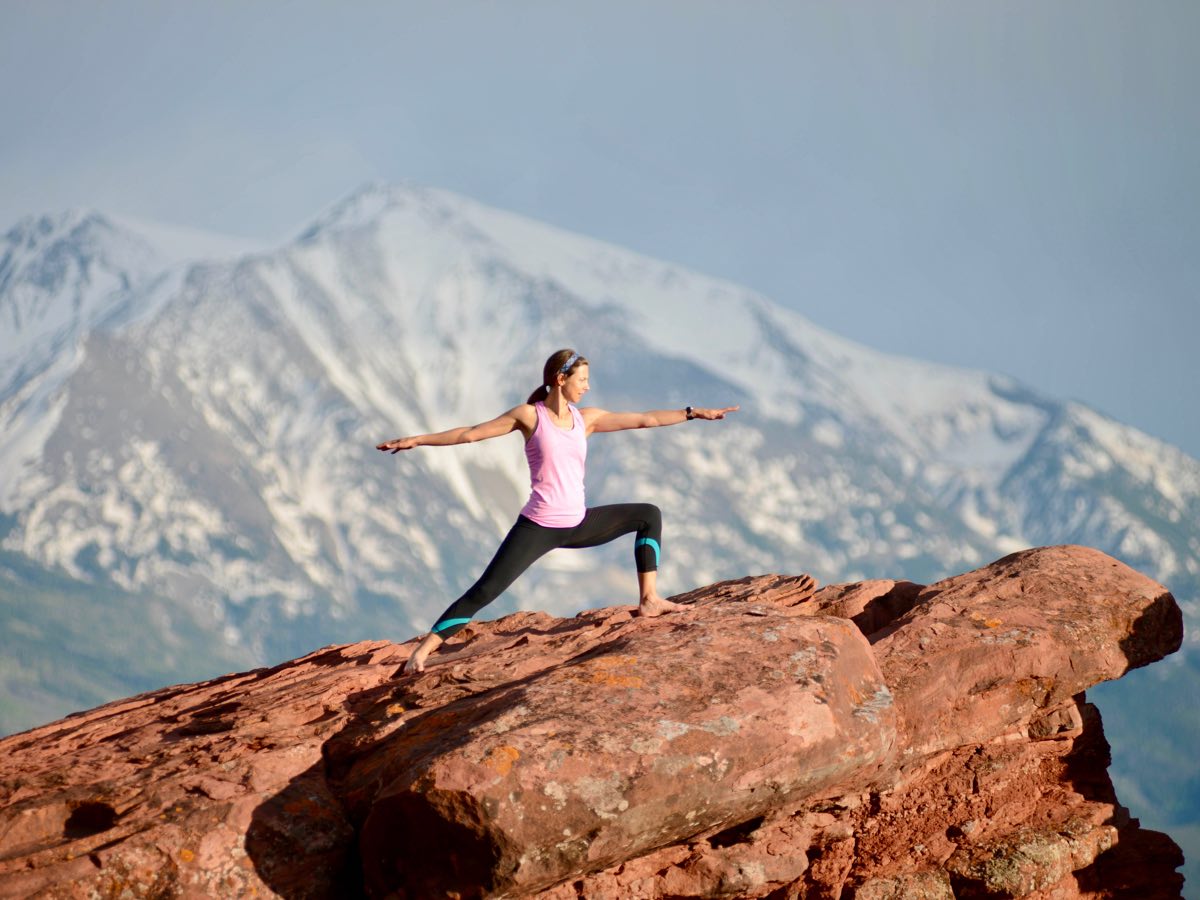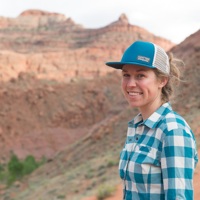Canadian trail runner and ultrarunner Elinor Fish crossed the finish line at the 2010 Leadville Trail 100 Mile in Colorado and was elated. But the then 35 year old was also exhausted. Running 100 miles is, indeed, exhausting but her fatigue ran deeper than that. In the following months, Fish’s health continued on a downward spiral.
Ironically, 2011 was also a peak of life success for Fish, as any onlooker would think. She left her dream job as an editor at Trail Runner magazine for another dream job at Backbone Media, where she managed marketing and public relations (PR) for clients in both the run and travel industries. She was raising her son Reed with husband Rob in their mountain home in Carbondale, Colorado. She’d just launched a new side business, Run Wild Retreats + Wellness, with the sole purpose of introducing more women to the sport of trail running—what she saw then as a huge demographic deficit of the sport. And after running for 20 years, she reached a pinnacle of her fitness and training.
“I had my biggest summer of training ever, before the Leadville 100. I had a huge amount of fitness. I thought I was doing everything right: training and eating well,” says Fish, who podiumed at both the 2010 Collegiate Peaks 50 Mile and Silver Rush 50 Mile leading up to her century run in Leadville. Despite and in spite of the momentum, Fish burned out. Six months after her 100-mile run, she was still not recovered. She was fatigued, bedridden, depressed, and riddled by the direction her life had taken.
But she’d always been an athlete. “I thought I knew my body because I’d always been training for something and received a lot of coaching. When my entire life started falling apart, I was like, ‘What does this mean?’ That’s when I realized, we can’t ignore the impact of stress on our lives and health as athletes. That forced me to dial back on ultrarunning, take stock of my priorities and self-care, and be proactive in managing my stress. I began studying mindfulness,” says Fish, who had started competing in cross country and track at age 15, in British Columbia, Canada, where she grew up in the West Kootenay region near Rossland, population 3,700.
After high school, Fish continued her athletic career at the University of Victoria, in Victoria, British Columbia, where her team won the 1998 Canadian Interuniversity Athletic Union National Cross-Country Championships. After college and circa 1999, Fish discovered trail running when she moved to Canmore, Alberta in the Canadian Rockies.
“I saw trail running start to emerge. Trail races had been happening, but the sport was starting to boom in popularity in Canada,” says Fish. Fish got more involved with trail running and ultrarunning—and won her first 50k race outright at the 2003 Lost Soul Ultra 50k in Alberta. She was working as PR for Banff Lake Louise Tourism and Travel Alberta International, so she had a chance to show media from around the globe why the region was so special. As a self-described workaholic, Fish was inherently driven to do and create more, beyond being a competitive athlete and having a full-time job. Simultaneously, she contributed a few freelance articles to the U.S.’s Trail Runner magazine and launched her coaching business, Peak Fitness Experience, with an emphasis on techniques for beginner runners.
A few years later, a door opened at Trail Runner. Fish’s articles had caught the eyes of the in-house editors, and they nudged her to apply for an open position on staff. When she scored the job, she moved across the Canadian border to central Colorado, planning to stay a couple of years at most. “Life had other plans. Next thing I know, I was married, having a family, and getting a Green Card,” says Fish, and two years turned into four at the publication.
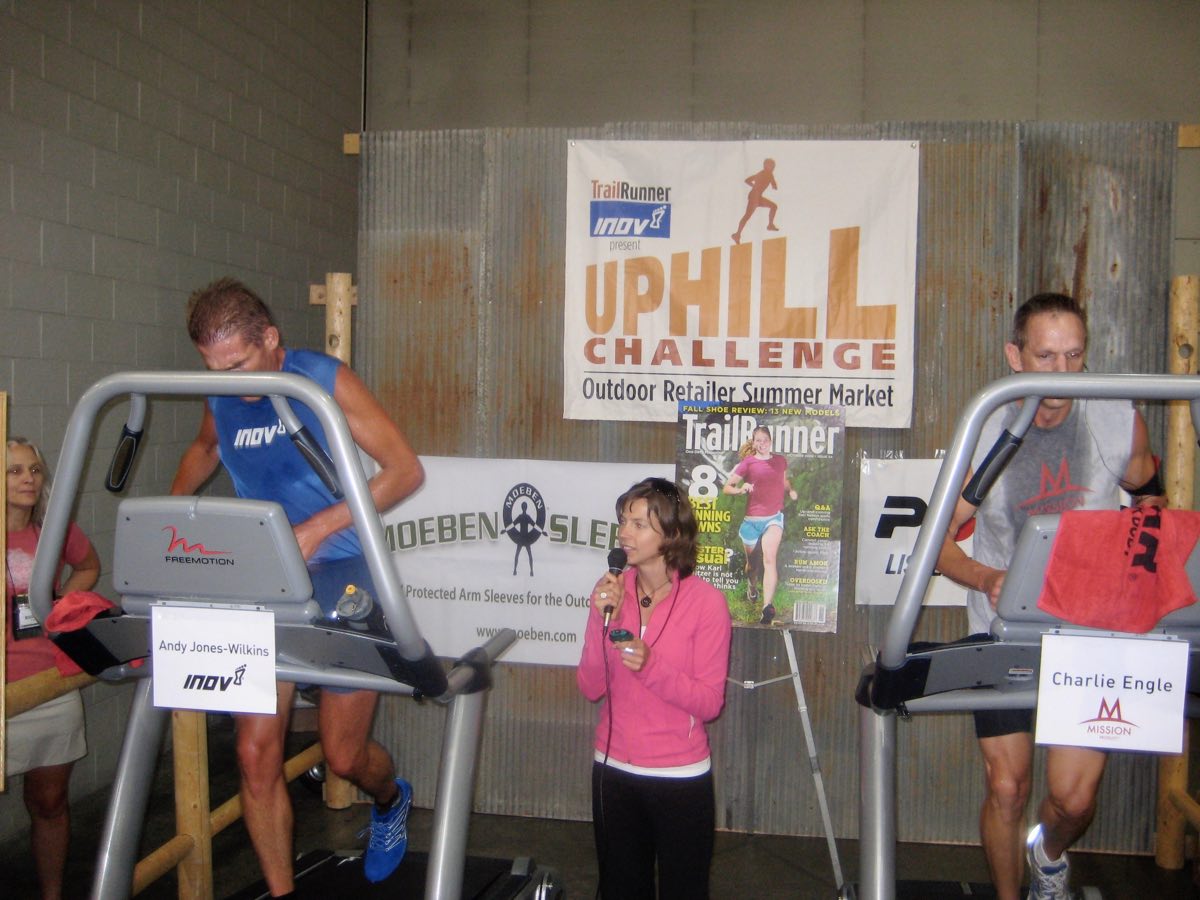
Elinor hosting the 2008 Outdoor Retailer trade show Uphill Challenge while working for Trail Runner magazine. Photo: iRunFar/Bryon Powell
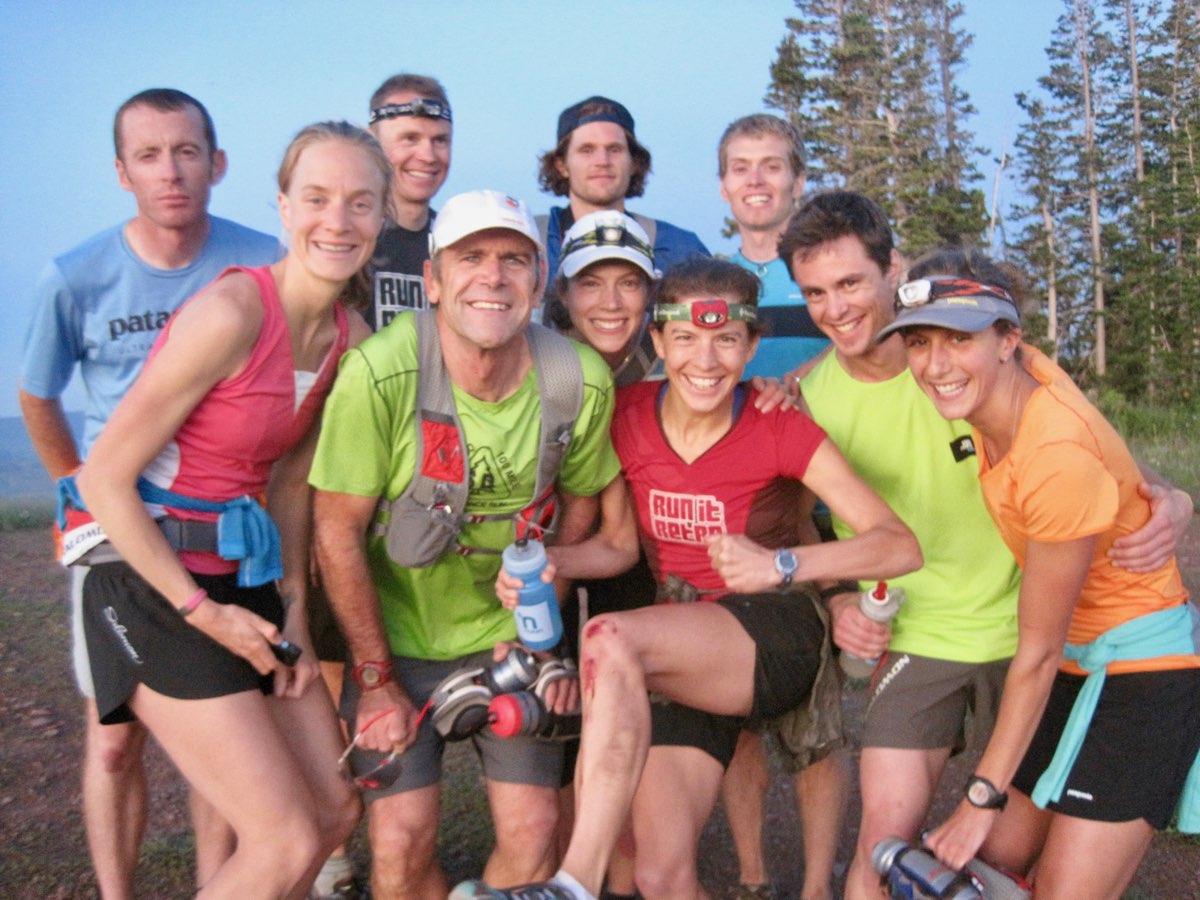
Elinor with a bunch of trail running and ultrarunning’s familiar faces during a trail run at the 2011 Outdoor Retailer in Utah. Photo: iRunFar/Bryon Powell
Working as an editor for a lead running publication was her dream job. Through that role, she traveled the world to learn about and meet the community’s athletes and media at large. But by 2010, she knew something was missing. “I was like, where are all the women? Most of the readership and race participants were men. Also, I wasn’t directly interacting with runners. As an editor, I felt cut off from the trail running community, as opposed to being immersed in it,” recalls Fish.
Enter Run Wild Retreats + Wellness, which Fish officially launched with one Colorado-based retreat that summer with a mission to bring women together and teach them how to safely and comfortably run on trails. At the time, not many trail retreats existed nor was there the focus on women’s-specific themes that exists today. Fish was a pioneer in what would soon become very popular.
Fish was surprised by the outturn of her first retreat. Sixteen women showed up, a handful of which flew to Denver, Colorado—from Brooklyn, New York; Washington; and Idaho—before driving several hours to the Elk Mountains. Fish took note from that debut. Participants were not so much showing up to learn better trail running technique as they were to learn stress management, maintain motivation, and avoid overtraining or fatigue. What women around the country were seeking paralleled the principles of mindfulness that Fish herself was beginning to lean into, within her own burnout.
“The body can’t differentiate between training and work stress. Stress, regardless of the source, triggers the same hormonal changes that lead to physical decline and mental decline goes with that, too. I want to bring to the forefront of the conversation how all of our stress exerts a toll on the body,” says Fish, who would need two full years to feel healthy again after she hit rock bottom. The tools she studied for her own wellness journey fed her guidance on the retreats, and women were reciprocally seeking to learn these stress-management practices, too.
As such, the curriculum of Run Wild Retreats + Wellness evolved with a honed meditation focus, woven into the act of running rather than as a separate therapy. “With mindful running, the running itself can be a mindfulness practice…. I do not have the patience to sit on a meditation pillow. Let’s be mindful while we run, instead, and that is more digestible for people who can’t stand to be idle. I truly believe in not forcing people to do something that does not come naturally. That’s why we don’t do meditation classes in the retreat,” explains Fish.
For the retreats’ teachings, Fish has gathered inspiration from many sources and teachers, and believes that mindfulness should not be branded or commoditized. However, the mindfulness-based stress-reduction program by Jon Kabat-Zinn, developed in the 1970s and backed by scientific research, has been a pillar within her program’s development. For groups of eight to 18 women, the specific focus is to maximize the stress-reducing effects of running.
“The goal is to run in a way that is nourishing, energizing, and supporting one’s overall health rather than breaking down our bodies [too much],” says Fish. As a travel retreat, the innate displacement of one’s familiar environment helps to facilitate new focus and invigoration for change.
“What we’re doing is very different, because we’re not at all focused on run training. We’re all about running as a mindfulness practice and how to be fully in your body when you run as opposed to what your head is telling you. We create a safe space for women to come together and open up about things they’re struggling with. Running physically helps move that energy, and that is such a beautiful thing to see,” says Fish.
From 2010 to 2014, Fish organized one retreat per summer in Colorado, until she dove full-time into her retreat business. “My heart was telling me, you have to do this. There is something here. I left my job to work on Run Wild Retreats before I knew how to scale it as a business. I had no idea how that was going to happen. I followed my instinct and started offering multiple retreats. By 2015, we went international and now we’re located in six countries,” says Fish. This year, Run Wild Retreats + Wellness celebrates its 10-year anniversary.
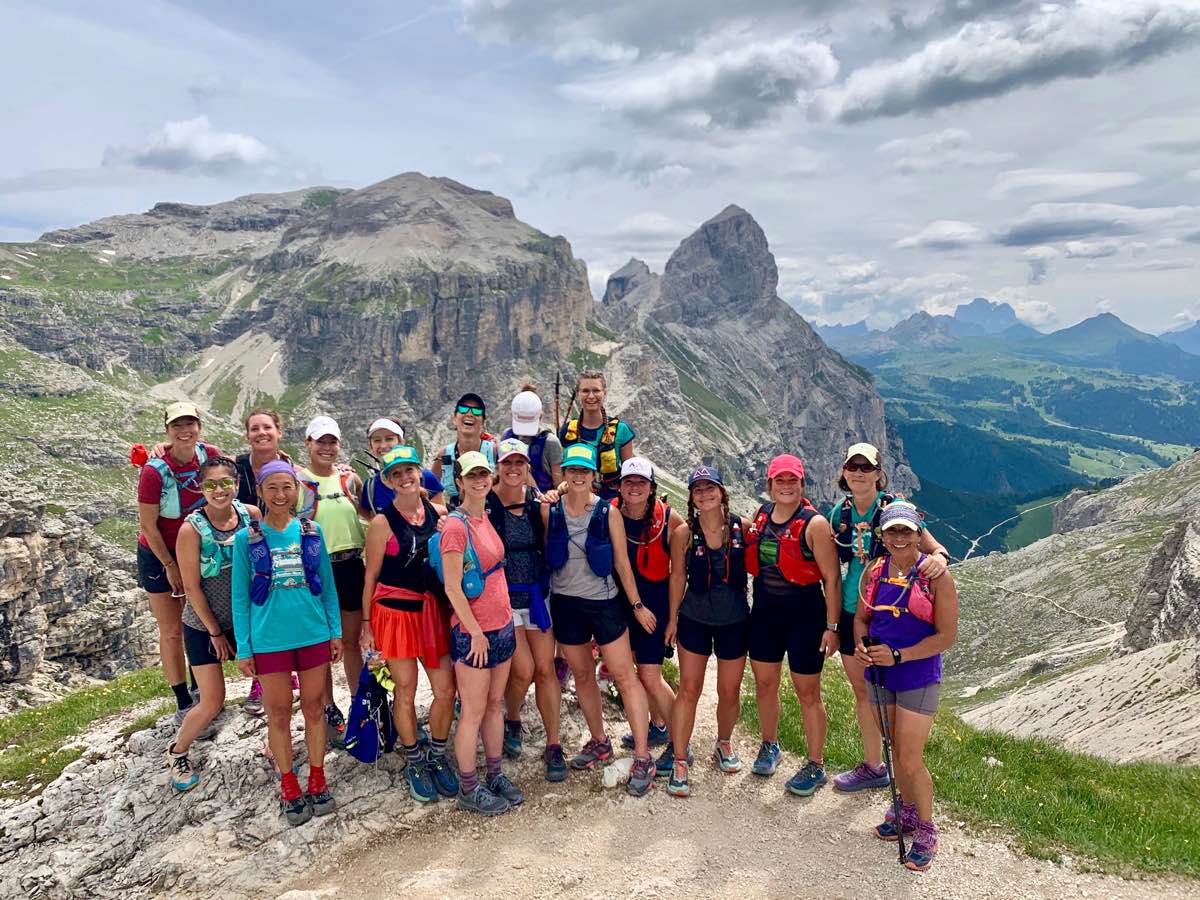
At the Dolomites Trail Running + Wellness Retreat, which takes place in Val Badia and Val Gardena in Italy.
In 2018, Fish fell into another trap of work overload. She guided 10 retreats, requiring her to travel to Europe four times in one summer. Her employees were all contractors helping here and there. “I was going down that slippery slope once again—the same as in 2011. That’s when I shifted my focus to build my team. Now, we have wonderful retreat leaders and administrative and operational staff. It’s exciting to take that pressure off myself and share this work with a group of women who are as passionate about it as I am,” says Fish.
In general, more people are seeking wellness travel experiences, and Fish’s company fits well in the niche. “There’s a growing demand for travel experiences that combine adventure and wellness. We’re in that sweet spot. It’s helped to support our rapid growth. Most of our retreats sell out each year. The biggest challenge is developing more programs faster. We could have added more retreats in the past two years if I’d been able to hire people faster,” says Fish.
Today, five guides and administrators work on the full-female staff at Run Wild Retreats + Wellness. To maintain integrity as the business grows, all of the employees are in-house or host video meetings when they can’t be on site, and the retreat-leadership training is comprehensive. Up to 14 retreats now take place worldwide each year, and that number is expected to grow—new destinations will be added in 2020.
And what about the women’s-specific aspect of her business? Explains Fish, “There’s a different dynamic involved with an all-women group. If the retreats were about training and athletic development, perhaps that wouldn’t be the case. But the retreats are about running mindfully for health and wellness, which means the conversations aren’t about run training so much as what’s causing participants stress or how negative self-talk is holding them back from pursuing goals or making lifestyle changes. These conversations are deeper in an all-women setting.”
She continues, “Having said that, I’ve participated in some retreats in the last couple of years that included men and women, and had wonderful experiences. Regardless, Run Wild Retreats will remain committed to serving women. I’ve seen it work so well for our groups that there’s no point in messing with a good thing!”
“El was a visionary and ahead of the curve on recognizing women’s desires to come together under the umbrella of trail running but experiencing magical destinations, overall wellness, and camaraderie. It was the perfect formula and remains incredibly relevant and impactful today,” said Lisa Raleigh, former publisher of Trail Runner magazine, who met Fish while working at the publication.
“There is something special about El. While she is an accomplished runner and a talented writer, she is also very grounded, warm, and inclusive. I marvel at how far she has taken her organization from what began as an organic passion to a multi-destination, high-end, coveted getaway,” said Raleigh. “As El’s business has grown, so have her destinations and trip offerings expanded. I am incredibly proud and excited for El for building a thriving, entrepreneurial business around her passion and talents and sharing this experience with so many others.”
Fish is retired from racing altogether and couldn’t be happier for the shift of attention and awareness. She listens to her body when she runs. She’ll explore trails around her home a few times a week, which might mean running 90 minutes or less. Then, she makes time for a restorative yoga class and spending time with her family. Fish says, “At this phase in my life, I don’t need to be out there for four hours to feel that release. I can run for 90 minutes and feel rejuvenated. I run as long as I need to feel good and manage my stress.”
Overall, Fish is most motivated to retain the distilled contentment and health benefits of running, and to share that with others. She says, “I want to create a place for people to experience the inherent joy of running that has nothing to do with how they compare other people or whether or not they race. People will say, ‘I’m not a runner, I don’t do races.’ You’re still a runner. You put on running shoes, and that makes you a runner, and you deserve to be here [at a running retreat] as much as anyone else. That keeps me inspired.”
Call for Comments (from Meghan)
Have you worked or run with Elinor Fish? Have you attended a retreat with Run Wild Retreats + Wellness? Leave a comment to share stories of sharing the trail with Elinor!
